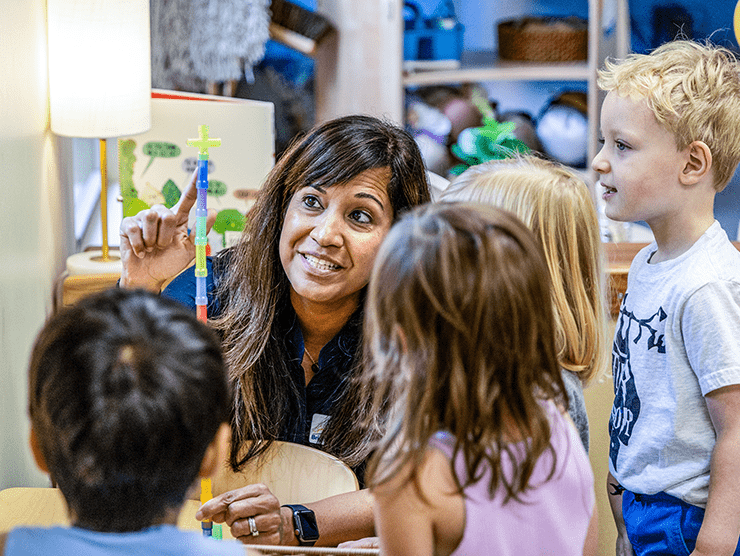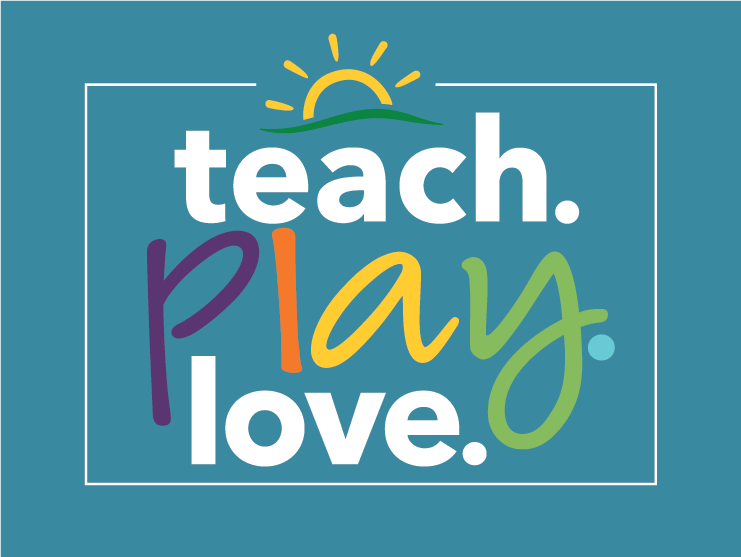We’re on our final episode of “Play Matters” where That’s Total Mom Sense host Kanika Chadda-Gupta and Bright Horizons’ child education expert Claire Goss explore strategies for encouraging play, managing screen time, and embracing boredom to help children grow into curious, creative, and independent thinkers.
The challenge of screen time
Modern parents face a unique challenge: competing with the allure of screens. According to recent studies, children spend an average of 2-4 hours daily on phones, tablets, and TVs. Knowing this, it’s no surprise that outdoor and unstructured play often take a back seat. Claire emphasizes the importance of stepping back and assessing how free time is spent. By observing children’s daily routines, parents can identify opportunities to incorporate more play into their schedules.
Create a "yes" environment
To foster play, create a “yes” environment—a safe space where children can explore freely without worrying about breaking things or being told, “don’t touch that.” Open-ended materials like blocks, art supplies, and cardboard boxes are invaluable for encouraging creativity. A simple cardboard box, for example, can transform into a spaceship, a house, or a race car in the hands of an imaginative child. These types of materials allow children to take the lead in their play, without a prescribed way a material or object is to be used. Allowing children ample time and space to focus on the process of their play can and will spark endless possibilities for exploration and learning.
The benefits of outdoor play
Outdoor play offers unique sensory and mental health benefits that are hard to replicate indoors. Outdoor play combines all the benefits of unstructured play with the added advantages of fresh air. Whether it is a family walk, a trip to the park, or simply climbing trees in the backyard, time spent outside encourages physical activity and connection with nature. Kanika shares how her own family enjoys outdoor adventures, from spotting caterpillars to climbing trees, turning every outing into an opportunity for discovery. Parents are encouraged to protect this time and model active participation to inspire their children.
Embracing boredom
Boredom is often viewed negatively, and as parents we often feel the responsibility to fill all aspects of our children’s day to prevent this from happening. Claire reframes boredom as a valuable opportunity for children to develop creativity and problem-solving skills. When kids say, “I’m bored,” it’s a chance for them to figure out what they enjoy and explore their interests and can actually help them become who they are. For younger children, parents can help children combat boredom by creating a list of potential activities, but for older children, it’s essential to give them the independence to decide how they want to fill their time.
Kanika shares a family practice of maintaining a list of activities—like building with Legos, playing board games, or exploring the outdoors—that children can reference when they need inspiration. This approach empowers children to take ownership of their time, fostering autonomy and confidence.
Getting involved in play
Play isn’t just for children—adults can (and should) join in! Engaging in play with children not only strengthens bonds but also models the importance of creativity and exploration. Claire encourages parents to embrace open-ended materials and ask open-ended questions like, “What do you think would happen if...?” to spark curiosity and critical thinking.
Adults should focus on the process of play rather than the end result, letting children take the lead and make mistakes. Whether its building block towers, painting, or making mud pies, messy play offers some of the richest opportunities for learning and connection.
By fostering creativity, encouraging exploration, and embracing the value of unstructured play, parents can help their children develop critical skills for life. Tune into episode 4 of Play Matters with Bright Horizons to learn more about these strategies and find additional parenting resources at Bright Horizons.





